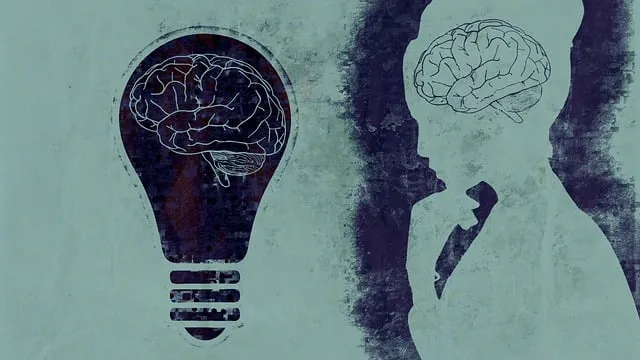Kaiser Permanente (Norcal) Castle Rock's group facilitation approach enhances mental wellness through supportive spaces, open discussions, and tailored strategies. Active listening, cultural competency, and community outreach ensure inclusive environments, while risk management plans prioritize secure sessions. Facilitators guide clients through personal journeys using Mind Over Matter principles, encouraging resilience and addressing issues like depression and burnout. Interactive activities, journaling exercises, and mental health education foster self-reflection and community growth, leveraging the Kaiser Permanente mental health phone number for accessible care.
Mental wellness group facilitation plays a pivotal role in enhancing support and recovery. This article explores proven techniques for professionals aiming to lead effective group sessions, focusing on strategies that foster safe, inclusive environments. We delve into creating supportive spaces, honing active listening skills, and promoting coping strategies through group dynamics. By understanding these methods, practitioners can better assist individuals navigating mental health challenges, as exemplified by successful models like the Kaiser Permanente mental health phone number Norcal Castle Rock offers.
- Understanding Group Facilitation in Mental Health Support
- Creating a Safe Space: Techniques for Inclusive Environments
- Active Listening Skills: Enhancing Client Engagement
- Promoting Coping Strategies through Group Dynamics
Understanding Group Facilitation in Mental Health Support

In the realm of mental wellness support, group facilitation plays a pivotal role in fostering emotional well-being promotion techniques. This collaborative approach brings individuals together, creating a supportive environment where sharing experiences and insights becomes empowering. Techniques such as Social Skills Training help participants navigate interactions with enhanced confidence and understanding. By facilitating open discussions, Castle Rock’s Kaiser Permanente mental health phone number (Norcal) professionals encourage peers to support one another, fostering a sense of belonging and reducing feelings of isolation.
The art of group facilitation goes beyond mere conversation; it involves guiding individuals through their personal journeys using Mind Over Matter principles. This strategy enables participants to reframe negative thoughts and embrace positive mental constructs. Through structured activities and guided reflections, facilitators help members cultivate resilience, cope with challenges, and ultimately, transform their perspectives. By combining these approaches, Kaiser Permanente (Norcal) Castle Rock offers comprehensive support, catering to diverse needs in a nurturing group setting.
Creating a Safe Space: Techniques for Inclusive Environments

Creating a safe space is an essential facet of mental wellness group facilitation, fostering an inclusive environment where participants feel comfortable expressing their thoughts and emotions. This involves cultivating an atmosphere of trust, empathy, and non-judgmentality. Techniques such as active listening, reflective statements, and establishing ground rules can help set the tone for the session. By encouraging open dialogue, facilitators create a safe haven, especially in communities like Norcal Castle Rock where access to mental health services is crucial (e.g., Kaiser Permanente mental health phone number).
Incorporating diverse cultural perspectives and ensuring every voice is heard is another critical aspect of inclusive facilitation. This can be achieved through Cultural Competency Training for healthcare providers, which equips them with the skills to navigate different backgrounds and beliefs. A well-structured Community Outreach Program Implementation can also help identify and address specific needs within the community, fostering a more welcoming space for mental wellness support. Effective risk management planning is essential to ensure these sessions are conducted securely, promoting a positive experience that encourages continued engagement in mental health initiatives.
Active Listening Skills: Enhancing Client Engagement

In facilitating mental wellness groups, one of the most powerful tools a leader can employ is active listening. It’s more than just hearing what clients say; it involves understanding their emotions and perspectives to foster a safe, supportive environment. By actively listening, facilitators encourage open dialogue, allowing clients to share their experiences, challenges, and insights without fear of judgment. This interactive approach not only enhances client engagement but also strengthens the therapeutic bond.
Active listening skills are particularly crucial for addressing issues like depression prevention, burnout prevention, and emotional regulation within groups. For instance, when a client at Castle Rock shares their struggle with stress management, a trained facilitator can reflect on their feelings, ask clarifying questions, and offer strategies tailored to their needs. This personalized approach ensures that every member feels heard and supported, ultimately contributing to the overall mental wellness of the group.
Promoting Coping Strategies through Group Dynamics

In facilitating mental wellness groups, one powerful tool is leveraging group dynamics to promote coping strategies. By bringing individuals together who share similar challenges, a supportive environment is created where members can learn from each other’s experiences and develop effective tools for managing their mental health. Through interactive discussions, activities, and shared reflections, participants gain insights into various coping mechanisms tailored to their unique needs. This approach not only enhances individual resilience but also fosters a sense of community, offering a network of support that extends beyond the group setting.
At Kaiser Permanente mental health phone number Norcal Castle Rock, for instance, group facilitators employ dynamic techniques such as Mental Wellness Journaling Exercises to encourage self-reflection and personal growth. These exercises guide individuals through mindful practices, helping them identify triggers, track moods, and develop positive coping behaviors. Additionally, the design of Mental Health Education Programs can be adapted to suit diverse groups, ensuring that everyone receives tailored guidance for enhancing their mental wellness and building confidence in managing challenges.
Group facilitation techniques in mental wellness play a pivotal role in fostering supportive environments, such as those offered by Kaiser Permanente mental health phone numbers in Norcal and Castle Rock. By implementing strategies like creating safe spaces, active listening, and promoting coping strategies through group dynamics, professionals can enhance client engagement and ultimately improve outcomes. These inclusive practices ensure that individuals feel heard, validated, and empowered in their journeys towards mental well-being.






